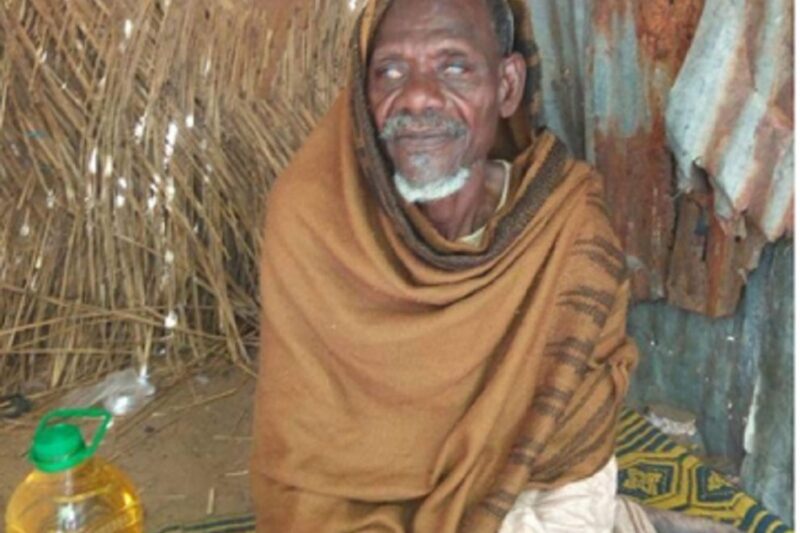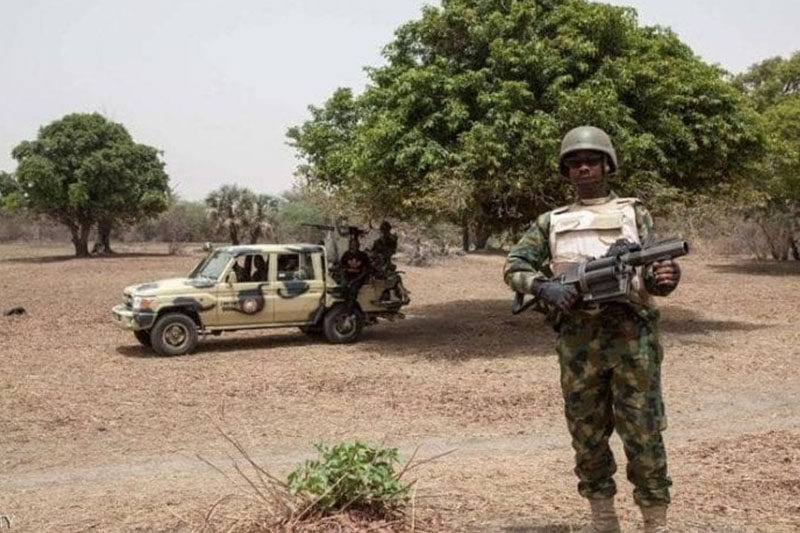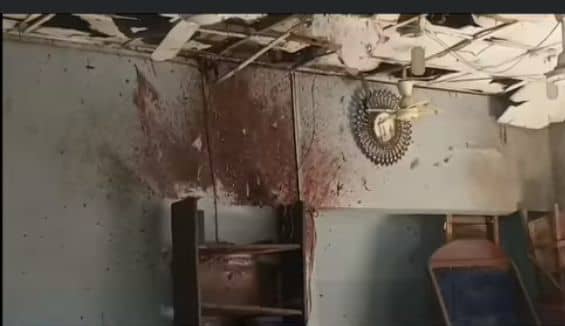Internally displaced persons (IDPs) in Maiduguri are very concerned about their children’s education because of the governor’s decision to close all camps in the city and return the residents to their own communities by December 31.
Borno State governor Babagana Umara Zulum made the announcement on Friday, October 22, after a closed-door meeting with President Muhammadu Buhari.
He told journalists that the decision to close the camps in Maiduguri was informed by the recent improvement in the security situation in the state.
He said the state government had decided to close the camps to enable displaced persons to return to their ancestral homes.
But many IDPs are fearful of returning home because, they said, attacks by insurgents were still occurring.
RNI reporter Fatima Grema Modu spoke to Ajid Grema, a blind father of four who lives in the Muna Garage El–Badawy camp in Maiduguri.
He said the education of his children remained his priority. He told RNI that he had never had the chance to go to school and he was determined his children would get a good education.
Grema and his family fled to Muna to escape insurgent attacks in the Marte Local Government Area.
He lost his sight to glaucoma, a condition that damages the optic nerve.
“I used to be a farmer. Then, one day, I woke up to find I could not see. I did everything I could to regain my sight. I visited hospitals and took every medication prescribed by doctors hoping that my sight would be restored. But, in the end, it worsened the condition.”
He said even though he was not given the chance to go to school and attain knowledge, he believed education was the most important thing in a person’s life and he had promised to provide this for his children so that they could be successful and useful to society.
“All my children are girls. My oldest child is eight, the next is six, the next four and last is an 18-month old baby. I want them to be educated, especially as they are all girls. Many girls in this country do not attend school. It’s the boys who are put first and get educated. But I want my girls to get a good education so they can make something of their lives.”
He said since he had lost his sight, his wife had taken over the responsibility of feeding the family. She sometimes went into the bush to find something to sell or to the grain-grinding centres to find food. He said he really regretted that he could not take care of his family anymore.
Grema said the three older children were enrolled in schools run by non-governmental organisations inside Muna camp. He took them to every day and waited until the classes ended and took them back home again. He had hoped this would continue until they reached university.
“I use a stick as my guide and the girls also guide me on the way to school and back.”
Grema said the news that all the IDP camps in Maiduguri would close by the end of December and that they would be returned to their communities had shocked him.
“I feel devastated. All I have ever wanted was for my children to be educated and trained professionally. I wanted them to attain knowledge and achieve greatness. I wanted them to be able to help society and make a difference. But my dreams have been shattered. I am scared that, if the government makes us return to our communities, my girls might not get the education they deserve.”
He wanted his daughters to become doctors or work in a useful profession. He did not want them to suffer as he had done.
“I think the decision by the governor is very harsh. If we are forced to return to Marte, I don’t think my children will get the same education as they are receiving now. They might not even be able to attend school at all. I am praying that the governor will change his mind. I am begging and pleading with him to keep the camp open. The thought of my daughters not getting an education just makes me want to weep.









